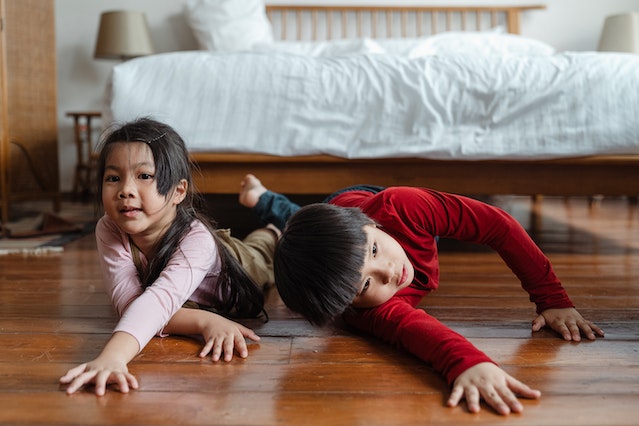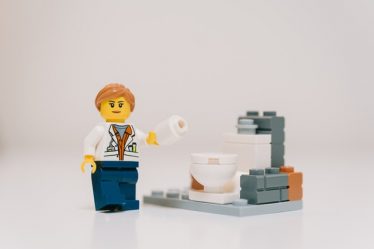
Bad behaviors in children are not something that are easy to deal with, especially when they are repetitive and chronic. However, parents need to remember that bad behaviors are also normal.
This article discusses what you should know about bad behaviors in children, including when they are normal and when they need professional help.
How Do We Define Bad Behaviors?
Acceptable behaviors in children are the behaviors that they exhibit with little to no negative consequences.
Bad behaviors, on the other hand, are behaviors that children exhibit that may lead to negative consequences for the child or for other people.
When a child exhibits negative behaviors, these are not acceptable to most parents.
If a child repeatedly causes trouble for himself or others, this is an example of an unacceptable behavior.
Unlike positive behaviors, which are welcomed by parents, bad behaviors are often met with frustration and even anger.
What Causes Destructive Behaviors?
Difficult situations and stressful events can lead to a child’s destructive behaviors.
For example, if a child is feeling sad or upset about something in his life, he may act out and make other people unhappy as well.
This is not an example of good behavior, but rather of negative behavior.
It is important to note that bad behaviors do not have to be caused by difficult circumstances.
Emotional pain, low self-esteem, or fear of failure are all negative emotions that can lead to negative behaviors.
If a child consistently exhibits these behaviors, this may show that the child has difficulty handling his emotions or other problems in his life.
Here, it would be best for the parents to help their child resolve any issues that are causing him to exhibit these behaviors.
A routine check-up with a child psychologist can help you determine if your child needs additional support or counseling.

Photo by Ketut Subiyanto on Pexels.
Are Some Bad Behaviors in Children Just a Matter of Time?
Some bad behaviors in children can be hard to change, especially when they become habitual. Parent-child relationship issues can lead to difficulty learning.
And a lot of parents will accept their children’s negative behaviors as part of growing up.
But experts say it’s important to recognize the signs that these behaviors are becoming a problem, so parents can intervene early.
What Can I Do To Help My Child?
The first step in helping your child learn good behavior is learning what he wants from you and what he expects from you.
Positive reinforcements, like treats, verbal praise, and special attention from you, can be powerful tools in helping your child learn to behave in the manner you desire.
In order to encourage him to stop doing what he is doing and start doing what you want him to do, there are a few things you can do.
1. Model Behaviors You Want To See
When you are around your child, you want to model the behavior you want him to do.
This can be as simple as standing up for yourself or putting yourself in a better position than he does.
You can also try not putting your child in the middle of an altercation with another child or being rude towards another adult.
When you are modeling good behavior, it is very difficult for your child to continue bad behavior.
2. Make Consequences Real
When you are out in public, it is important that you make your child aware of his misbehavior.
This could be a verbal reprimand or a time-out.
It is very important that children understand that their misbehavior will have consequences, especially if they continue to do it after they have been told what they did was wrong.
3. Get To Know Your Child
When you get to know your child and his interests, his good qualities and his personality traits, then he will develop into a more well-rounded child.
This is an important part of the parenting process because you want to know what your child likes to do and what makes him happy.
Then you can help him reach those goals by helping him to develop good behaviors and provide him with a good life.

Photo by Ketut Subiyanto on Pexels.
When Do We Need to Call for Professional Help?
These signs of a child’s unacceptable behaviors may be a sign of a mental health problem. The signs may also be a sign that the child needs professional help:
- Violent, destructive or have a difficult time learning.
- Always irritable.
- Aggressive to peers or teachers.
- Frequently lose control of himself and have impulsive behavior. He has trouble concentrating, may have low grades, or is having problems at home, school or work.
When these signs are present, call a professional for help. Some professionals can help children with behavior problems.
These professionals include social workers, psychologists, counselors, and psychiatrists.
Mental illness is not something that goes away by itself.
If you wait too long to seek professional help, your child may get worse and may need a hospital stay or inpatient treatment.
The Key to Behavioral Treatments
Behavioral treatments are usually effective in changing bad behaviors in children. Behavioral treatments may include group therapy, family therapy, or individual therapy.
Group therapy is therapy that can help children and adults work through their problems with others who have similar issues.
Family therapy helps families with problems communicate more effectively with one another and resolve conflicts that may arise between members of the family.
In addition, family-based therapies can help families and children develop better coping skills and coping strategies.
Individual psychotherapy is also a substantial form of treatment for unacceptable behaviors in children because it focuses on each child’s unique needs.
Our blog, The Mindful Parent, will give you helpful tips on how to teach your children better behavior and develop good habits that they can continue throughout their lives.
Check out our blog, Mature Parent, for more information on this topic!



